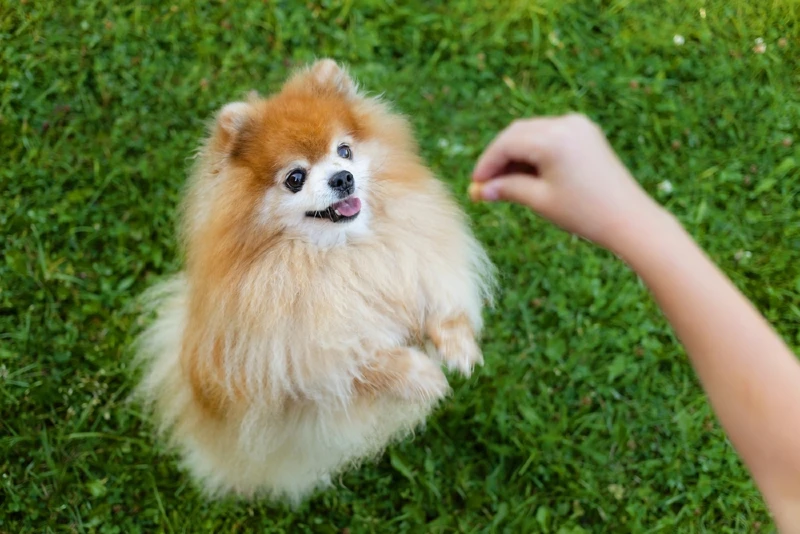
Every spring, parents delight in giving their kids a challenging Easter egg hunt to find candy and treats hidden in brightly colored eggs. If you want to treat your dogs to the same fun, setting up a dog-friendly Easter egg hunt is a great way to provide treats and do some scent work1.
Easter egg hunts are easy to put together in your own home or yard, and you can bring the whole family in on the action. Here’s how to set up your own Easter egg hunt for your dog this spring.
How to Plan an Easter Egg Hunt for Your Dog
1. Gather Your Supplies
Easter egg hunts don’t require a lot of preparation. The only supplies you need are some dog treats and plastic eggs.
The biggest difference between an Easter egg hunt for dogs vs. kids is the safety of the plastic eggs. If you have a large dog or a voracious chewer, it’s best to choose large eggs that can’t be swallowed or opt for Kong toys that can be filled with treats. The game is still the same, but it’s a lot safer.
2. Select Your Treats
Scent work asks your dog to use its nose to find rewards, so pungent, high-value treats are a must. Regular kibble just won’t do in this situation. Try to select smelly treats that you know your dog enjoys, such as lamb or beef liver treats. Stick to small bits to avoid your dog overindulging.
As your dog works its way through the hunt, be sure to praise it for finding the eggs and getting the treats out. Encourage your dog to keep searching until the eggs are found.

3. Keep an Eye on Your Dog
If you’re doing an egg hunt in your yard or home, you can let your dog run free to find the eggs. If your yard isn’t fenced in, you may want to use a long lead to give it some freedom without risking an escape. Make sure to keep an eye on your dog to ensure it doesn’t ingest an egg or choke.
If you’re attending a publicly organized dog Easter egg hunt with others, follow the leash rules, A bunch of loose dogs hunting treat-filled eggs together is a recipe for disaster with food guarding or fighting, not to mention that dogs can get carried away roaming together.
4. Avoid Combining Kid & Dog Easter Egg Hunts
It may be tempting to host the Easter egg hunt for your kids and dogs together, but that poses a risk to your dog’s health. Dogs can’t eat chocolate or some other candy that’s often given to children. And once the hunt is underway, it will be virtually impossible for you to distinguish between the eggs or keep your dog from accidentally grabbing the wrong ones.
Host your children’s Easter egg hunt with the dog safely locked inside, then switch out the eggs for the dog-only egg hunt. Before you begin, count the eggs to keep track of them and ensure your dog doesn’t discover an egg later and chew it up or swallow it.

5. Work With Dogs Individually
Even if your dogs get along normally, the Easter egg hunt should be a one-on-one activity. Food guarding can arise in the sweetest of dogs, and you don’t want them in competition over the hidden eggs. Also, you could end up with one dog getting a lot more eggs than the other and ruining the fun.
Use the egg hunt as a bonding experience between you and your dog with separate hunts. You’ll have a better time teaching your dog and enjoying the game with them if you’re working with one rather than your whole pack.
Summary
Include your dogs in the springtime festivities with a dog-friendly Easter egg hunt! As long as you take some safety precautions, you can have a fun learning experience and enrichment activity for your dog.
Related Reads:
Featured Image Credit: Ezzolo, Shutterstock






